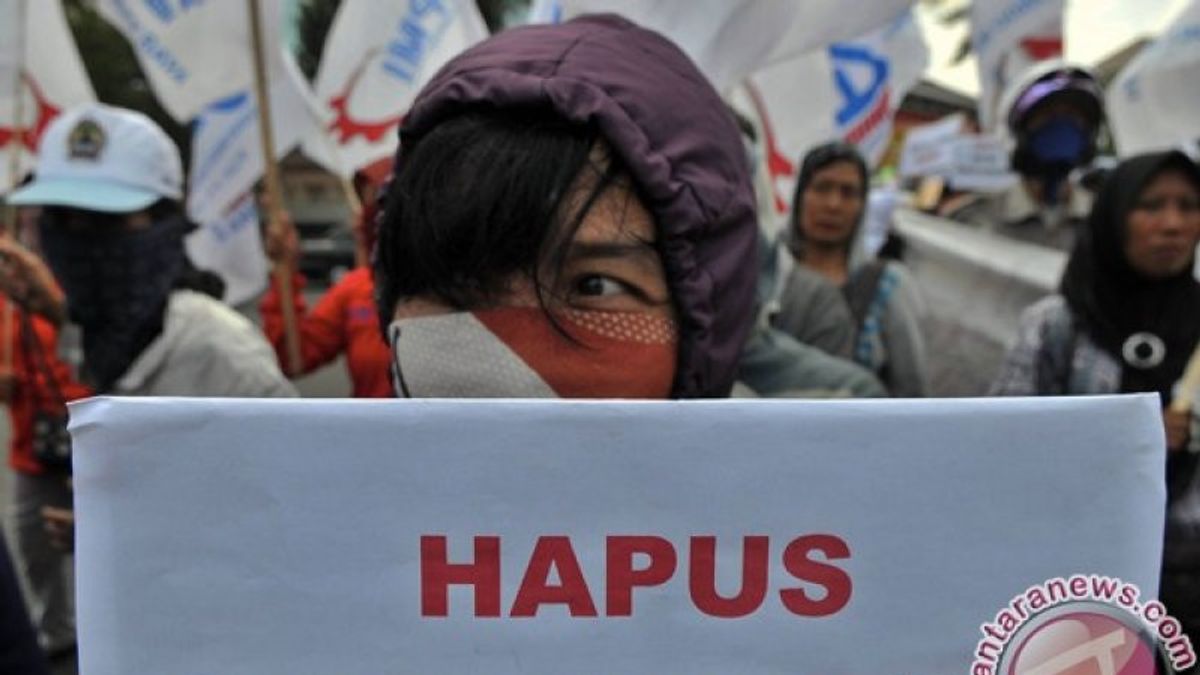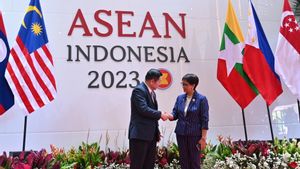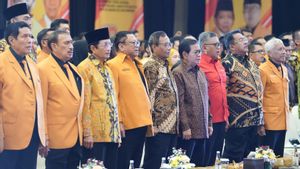JAKARTA Outsourced provisions are still what workers have fought for in the last 10 years. The outsourced mechanism in Indonesia, said President of the Confederation of Indonesian Trade Unions (KSPI) Said Iqbal, is clearly very detrimental to workers.
There are frequent violations in its implementation. The government through the Regulation of the Minister of Manpower and Transmigration Number 19 of 2012 has limited only five types of jobs to be allowed to use power transfer workers, namely cleaning services, catering, security, drivers, and oil passengers services.
But the reality is, many outsourcing service providers provide jobs outside of these provisions, such as for customer service positions, storebanks, and a number of other positions.
Not to mention, the lack of social security and the difficulty of getting severance pay when experiencing layoffs. Also, frequent violations of working hours.
"Labor is humans, not robots. It takes wages like and protection. Without it, it's the same as modern slavery," Iqbal said in his statement to VOI on April 27.
Instead of improving, his condition is even more unclear at this time. Perppu Number 2 of 2022 Job Creation still limits the type of work that can use outsource power, but the restrictions are regulated through Government Regulations.
Further provisions regarding the determination of some work implementation will be regulated in government regulations, as stated in Article 64 paragraph 3.
Whereas previously, Law Number 13 of 2003 concerning Manpower limits on the type of job outsourced by legal products at the level of law, not government regulations. So it's even more confusing, even detrimental to workers.
"This means that the government has positioned itself as an agent outsourced," said Iqbal.
SEE ALSO:
That's why, Iqbal asked that outsourced arrangements should also refer to the welfare of workers, not just for the benefit of entrepreneurs.
"Keep using the old rules.Outsourcing is not allowed for core work, but only supporting work. Those are also only 5 types as stated in the previous rules," he added.
Outsourcing practice is actually not new in Indonesia. It has existed since the Dutch colonial era. The Governor General of the Dutch East Indies once made Regulation Number 138 concerning Koeli Ordonantie when boosting the proceeds of spices in Deli Serdang to meet the needs of the international market.
The system in Koeli Ordonantie describes the concept of outsourced which basically gathers labor, then is employed in a place that requires it. With low wages, the Dutch East Indies government empowered workers to succeed in encouraging the investment rate of the tobacco plantation sector in Deli.
Even so, this practice did not develop better. The government has actually made various efforts to further balance the interests of workers and the interests of employers through a number of rules.
However, the impression created remains the same. The implementation of outsourcing is like slavery in modern job relations because the supervision is so weak that there are still many irregularities that occur.
Unlike developed countries such as Germany, Canada, or Japan which are much better. They are able to provide good wages for outsource workers. Even the workers, according to Triyono in the journal "Outsourcing in the Perspective of Workers and Entrepreneurs", get various social security from the government if they are laid off.
In the end, the investment climate can run conducive, the number of unemployed is minimal, and people's welfare is increasing.
Like there is a mutually beneficial bond. Workers are easier to find suitable jobs. On the other hand, companies also no longer need to bother looking for employees who are competent and more easily replace them when they are not productive. So, it can minimize the company's operational risks.
That is what must be addressed. The Indonesian government must look at this problem comprehensively in order to provide an appropriate and balanced solution. So, workers and entrepreneurs can be calm in working and doing business. In the end, the investment climate will develop and synergize with employment.
"Protection for workers is very important. In addition, guarantees of stable security and legal certainty are no less important as protection for entrepreneurs," Triyono said as quoted from his journal on the LIPI website.
The English, Chinese, Japanese, Arabic, and French versions are automatically generated by the AI. So there may still be inaccuracies in translating, please always see Indonesian as our main language. (system supported by DigitalSiber.id)














